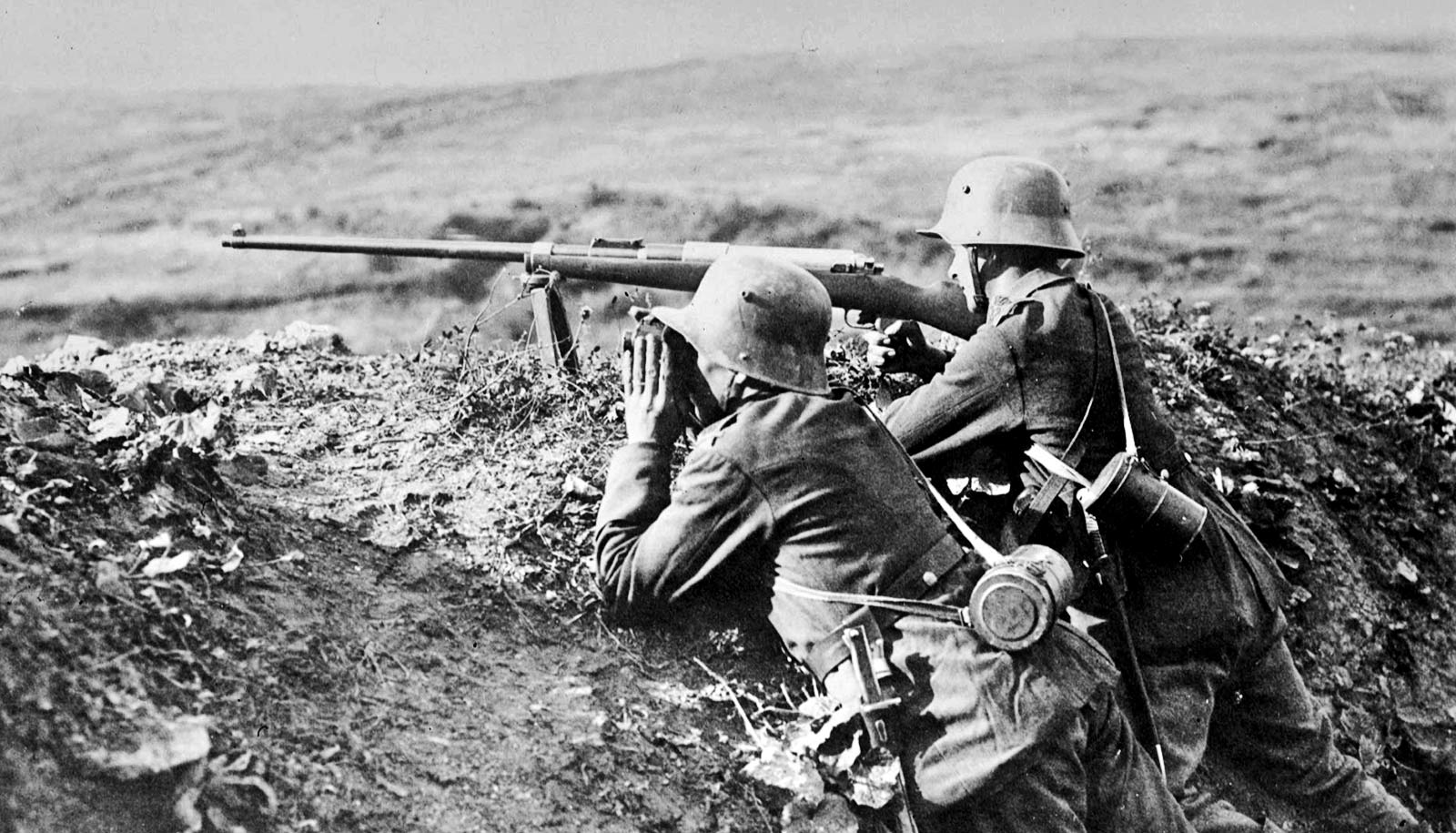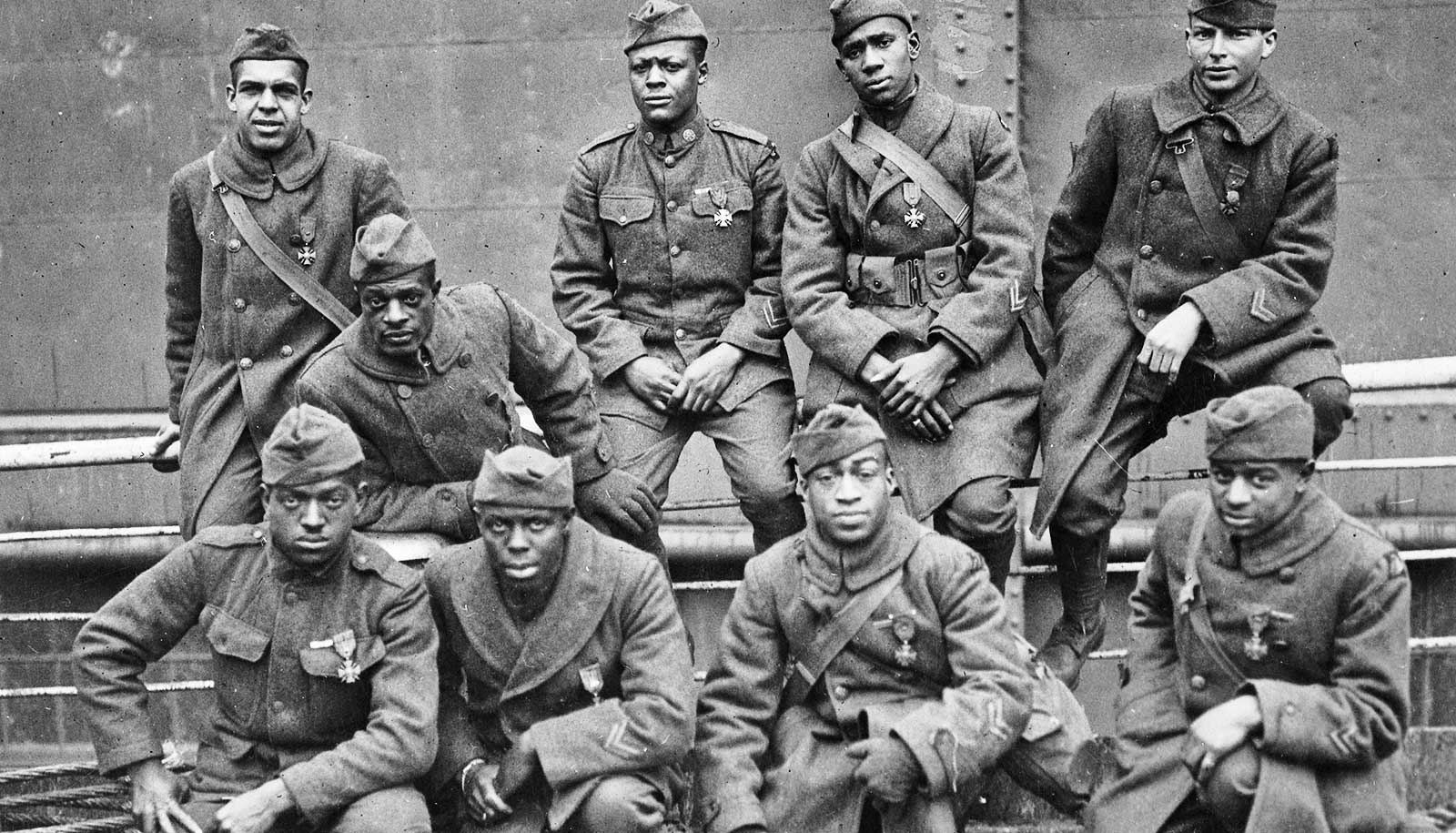A new book brings readers lesser known short stories by famed German writer and World War I veteran Erich Maria Remarque.
Among the books that the Nazis banned and burned was All Quiet on the Western Front, a novel Remarque published in 1929. All Quiet follows Paul Bäumer, a German soldier fighting in the first World War, and describes in brutal detail the war’s bloody horrors. In the book’s epigraph, Remarque writes that the novel “will try simply to tell of a generation of men who, even though they may have escaped its shells, were destroyed by the war.” The book established Remarque as one of the premiere chroniclers of World War I.
Now, with the publication of Eight Stories: Tales of War and Loss (NYU Press, 2018), readers can access a collection of some of Remarque’s lesser known works, a century after the war’s end.
Larry Wolff, a history professor at New York University, director of the Center for European and Mediterranean Studies, and executive director of the Remarque Institute, cowrote the book’s introduction. Here, Wolff talks about the impact of Remarque’s legacy and the lasting urgency of his work.
Why publish these writings of Remarque now?
These are prime works of fiction by one of the great canonical figures of modern world literature, and stories which deal with his most important subject: World War I. These stories were written for an American public, originally published in an American magazine—Collier’s—but as magazine stories they had long disappeared from literary memory. I’d never heard of them myself!
As far as I know, they have not been re-published in English since they first appeared in the 1930s, though a German edition was published in the 1990s. It was therefore high time to bring these stories back into circulation and establish their place in Remarque’s remarkable oeuvre. 2018 is also a centennial year marking the end of World War I, so it was particularly appropriate to publish these stories then.
How do the stories in the book compare to Remarque’s All Quiet on the Western Front?
All Quiet on the Western Front is a novel about the experience of the war, written postwar, but narrated in the present tense as if the war is actually taking place in the pages of the book. That’s what gives the novel its extraordinary power. These stories are also about the war, but told in retrospect, from the perspective of those who are remembering the war after it is over, and experiencing its aftereffects, sometimes as very disturbing memory and sometimes as something more medically akin to post-traumatic stress disorder.
I love the story “Where Karl had Fought” because it’s about revisiting the battlefields (where Karl had previously fought during the war), but the battlefields are now places of quotidian life, with children playing and cows grazing, that also serve as sites of commemoration. They can serve as historical reminders for passersby, but they can also evoke the whole horror of war for someone like Karl, a former soldier, whose memories never let him put the war behind him.
In all of these stories Remarque shows the extraordinary temporal overlap between two epochs—wartime and peacetime—divided in history but still commingled in the minds of those who experienced the war and live on into the peace.
Why do Remarque’s stories resonate with readers today?
World War I was imagined by some contemporaries as the war to end all wars, but of course the postwar period led quickly to the outbreak of World War II. War is with us still at the beginning of the 21st century, as soldiers of many countries are and have been deployed in different parts of the contemporary world, and the danger of new and more terrible wars is always with us.
Remarque’s anti-war message remains, sadly, always current, and the horrors that his work evokes are recognizable to every generation.
A century has passed since the end of World War I. How has Remarque’s legacy fared?
He’s the most influential, most vivid, most admired, most widely read literary writer about war of the last 100 years. He made war writing—and anti-war writing—a part of the 20th-century literary tradition. He has never gone out of print, and has been rediscovered by generation after generation.
Source: New York University



